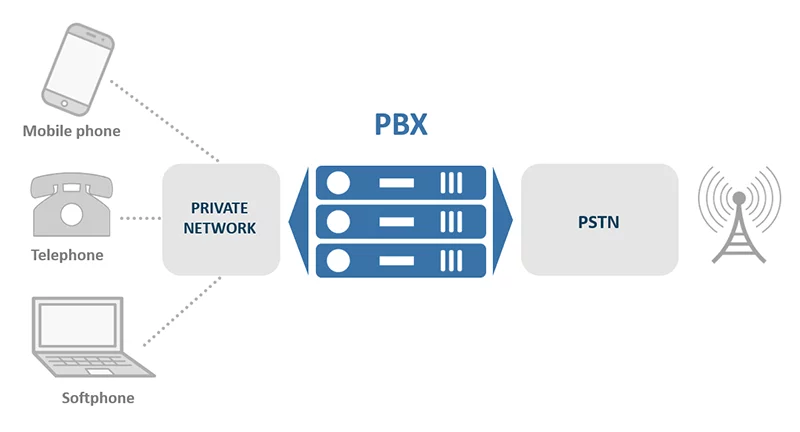People started noticing virtual events after the pandemic. However, virtual events existed well before the pandemic struck. In fact, virtual events first appeared in the 1990s. But they were not able to fully replace the live events until last year.
Many people are unaware of the fact that virtual events were gaining traction before the pandemic began. And were considered the most exciting trends by analysts and marketers. This is because of the increasing integration of technology in our life.
It was estimated that before the pandemic, about 40% of the marketing spends were on physical events. But now we will see a decrease of up to 20-25%. And a shift towards virtual events. Around 80% of marketers affirm that businesses are in favouring the transfer to virtual platforms. And technology adoption will no longer be a barrier.
The Grand View Research report says the global market size of virtual events is valued at $77.98 billion in 2019. And it is poised to surpass the $404 billion mark, with a CAGR of 23.2% from 2020 to 2027. This clearly means that virtual events are here to stay for a sustained period.
There are plenty of reasons to back the growth of virtual events. Let’s explain why virtual events are attracting so many people. And why it will continue to do so in the future.
Reasons behind the Growing Dominance of Virtual Events
Affordability
Now everyone can host an event with the help of virtual event technology. You don’t need enormous sums of money to host an event. As you can avoid several expenses like booking a venue for your event. Also, you don’t have to worry about food, travelling and accommodations. And without these expenses, hosting an event is not a pricey affair anymore.
Time flexibility
To attend an event, you are required to travel to the location of the event. And this also costs valuable time. But with virtual events, you don’t need to do this. And this means even those with the busiest schedules can attend the event.
Increment in viewership
Often people have to miss the events for which they were eagerly anticipating. This is because of several reasons. However, the financial reasons like cost of travelling and accommodation. And the time required to travel is the dominant reason. But with virtual events, you can easily overcome these constraints, hence, making your event accessible to a broader set of audiences.
And if you provide the on-demand video of the event, people can view the event even after it has ended. Hence a wider reach.
Attendees from worldwide
By switching to virtual events, you can take your event to the world. You can host an international event. Since with the help of technology, constraints like a geographical barrier, time and financial barrier become irrelevant. This means anyone from any part of the world can attend the event. All you need is to provide time according to different time zones. Also, by making the recording available, people view the event as long as the recording is available. Thus making your event truly global.
Higher value Proposition
Virtual events offer better value for the money. And you get higher ROI (Return On Investment) in comparison to physical events. And without spending too much money, you can host a larger audience and global event. This is not possible with in-person events. And even if you decide to host a live event of a similar size, it will cost significantly more.
More eco-friendly
With virtual events, you can reduce your carbon footprint. You can cut the usage of several resources. Some of these resources are paper, wood, plastic and so on. This means your event is much more eco-friendly than a traditional in-person event. Also, this will help you to attract those people to your event who prefer eco-friendly events.
Availability of Live Analytics
One of the benefits that are exclusive to virtual events is the availability of live analytics. It means that you can keep a tab on the activity of the individual attendee. You can see when they logged in. Which booth they visited. Or whom they contacted and so on. This helps you to determine the effectiveness of each booth or session. And what worked at your event and whatnot.
Apart from this, you get a chance to make changes in the middle of the event to enhance the audience’ experience. This is simply out of the question when it comes to physical events.
Accessibility to feedback
In virtual events, it is easy to collect feedback. You don’t have to roam around individual attendees. Or hire a person especially for this job, unlike physical events.
All you have to do is make a feedback form that the attendee can fill before the event. Alternatively, you can mail the feedback form to the attendees after the event. Either way, you get feedback. And this feedback will give deep insight into the audience’ experience at the event. And their preference. So you can use this information to target your audience more effectively in future events.
These are some of the reasons for the growing popularity of virtual events. Now let’s look at some of the possible scenarios when the live events return.
Future of Virtual Events
1. Shift to Hybrid events
One sure thing is that the convenience of a virtual event cannot be replaced by live events. And event organisers understand this. So they will try to find a middle ground. And that middle ground will be the hybrid event. In other words, the virtual event will be combined with live events. Therefore, even after the resurgence of live events, virtual events will still remain crucial. Since no one wants to give away benefits like the broader and global audience, virtual events will be used alongside live events.
2. Virtual Networking
People have become used to virtual networking. And it will be difficult for people to communicate like they used to do before the pandemic. They need some time to adjust again in the physical setting. Also, networking tools like AI Matchmaking, Networking lounges, and 2-way interaction has made networking more effortless and effective. These tools are essential for those who don’t feel comfortable communicating in-crowd. So virtual networking will be one of the prominent reasons to keep virtual events relevant.
We hope you like this article. So share your thoughts on the future of virtual events.
Saanvi is a creative designer and a blogger who writes about the latest technologies and digital marketing trends. Nowadays she is writing about the latest event technologies, IoT, virtual events platforms, and hybrid events technology that gain great engagement and are loved by the readers. She keeps herself updated with the latest technologies in the world of social media. She loves to read fiction and travel, to gain new experiences whenever she finds spare time.















Leave a Reply